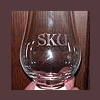ADI Clarification program to distinguish between craft spirits and craft blends.
This topic has been inactive for at least 365 days, and is now closed. Please feel free to start a new thread on the subject!

By
sku
in General Bourbon Discussion
By using this site, you agree to our Terms of Use.
Recommended Posts